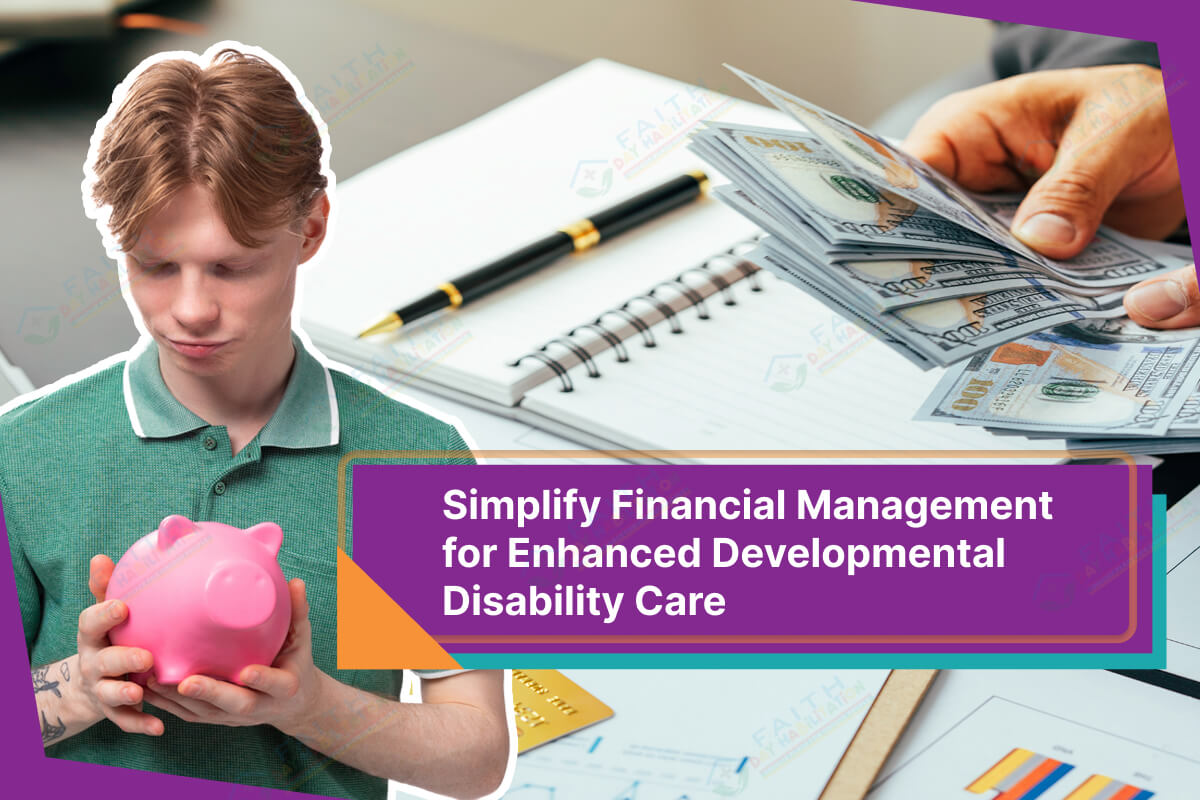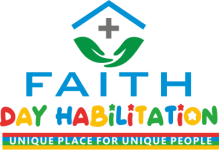In taking care of developmental disorders, an area that is commonly neglected is financial management. Money has a decisive influence on the quality of life of people with developmental disabilities; however, most of them do not have adequate skills and support to properly work out their finances.
The purpose of this article is to simplify money management for adults with disabilities, by focusing on the aspect of money management and the development of daily financial skills, as well as the establishment of custom finance management programs.
Understanding the need for money management for adults with disabilities
Financial management is difficult for those with developmental limitations. Cognitive limitations, difficulties processing complicated information, and limited resources and support systems can cause these issues.
Thus, many people with developmental impairments struggle with budgeting, saving, banking, and financial decision-making. They risk financial exploitation, destitution, and economic isolation due to their susceptibility.
Finance and money skills development
Individuals with developmental impairments should be prepared to acquire money management skills to live independently, make decisions on their own and enhance their quality of life.
Therefore, finance and money skills development are the key components of the individual training courses and programs. They can help to meet the diverse learning styles, communication preferences and cognitive abilities of all people, at all ages and abilities.
Key components of finance and money skills development programs include:
- Basic financial concepts:
Bring to their attention the basic finance building blocks like salary, charges, budgeting, saving, banking, and credit. Stimulate the audiences’ understanding and participation with using simplified language, visual aids, and interactive activities. - Hands-on learning experiences:
Teach financial skills through simulations and role-playing to enhance competence and add confidence. As an example, imagine the participants walking around the store. They should either set themselves a budget or buy within a given limit. - Personalized support:
One-on-one support should be considered for those participants struggling with problems and doubts. The approach may include evaluation, goal setting and individualized financial strategies that will work for the person’s desired outcome, style and abilities. - Peer support and collaboration:
The establishment of peer support and collaboration can create a warm learning environment for learners to share experiences and ideas comfortably and hence help to improve learning. Through activities such as workshops, peer support groups and collaborative activities the qualities of self-motivation, socialization, and skill development are enhanced.
Daily financial activities
In addition to formal education and training, including the daily financial activities of people with impaired development in their daily routine makes it possible for them to use and keep financial skills. These activities must mimic real world scenarios so that people can acquire initial knowledge and skills for managing their finances.
Key daily financial activities include:
- Creating and managing a budget:
Assist them to outline their monthly income and expenditure along with their savings targets. Prompt budget review to accommodate updated needs and priorities. - Tracking expenses:
Teach individuals how to manage spending using the traditional way of recording transactions such as notebooks, spreadsheets, and mobile phone apps. Bring emphasis on keeping the expenditure in order to spot the trends, control the flow of funds and sticking to the budget. - Paying bills on time:
Assist people in setting up auto payments or enable them to have a bill payment schedule that is on time. Assist in prioritizing payments, coordinating due dates, and preventing late fees. - Making informed purchasing decisions:
Teach people how to make educated buying decisions by comparing costs and reading labels then reviewing quality and worth. Learn where to shop at the grocery stores, department stores, and online. - Saving and goal setting:
Setting short-term and long-term saving goals and the ways to reach them.
Financial management programs
Developmentally disabled people’s financial well-being and independence is tied closely to financial literacy and empowerment programs. Through the programs, the focus should be on a holistic approach, put the individual at the center, and adapt to the participants’ different needs and shortcomings. Finance management program offer individuals a clear picture of the working of the complex financial system, and they assist them to overcome problems associated with finances by providing them with education, support and practical tools.
Key components of finance management programs include:
- Individualized financial assessments:
Undertake heavy financial surveys to point out the participants’ abilities, needs as well as expectations. Take into account income and expenses, assets and debts, your financial goals, and risk profile. - Personalized financial planning:
Design plans that are specifically targeted to participants’ prejudices, values and priorities. Identify feasible targets and a plan to build financial strength for individuals, caregivers, and support networks. - Skill building workshops and training sessions:
Conduct skills training programs and classes that cover financial basics of, for example, budgeting, banking, credit management, debt management, and fraud prevention. Interactive, and participative approaches drive better learning and retention. - Access financial tools and resources:
Supply tools and devices for money management and decision making. An example would be budgeting software, internet banking, financial papers that you can access easily and adaptive technology. - Community partnerships and referrals:
Expand financial product, service, and support network access by working alongside banks, governmental agencies, community groups, and advocacy entities. Partner to provide financial counseling, benefits support, and legal advocacy services. - Continuous monitoring and support:
Assess financial management program effectiveness and determine the areas that need to be strengthened. Be always helping, guiding, and motivating people who are experiencing financial turmoil and advancement.
Conclusion
The act of financial management is very important for the improvement of dignity and independence of the developmental disabilities patients. Through working collaboratively, learning, and receiving support, there can be a more inclusive and equity-oriented financial future where everyone has information, skills and resources necessary to succeed.













